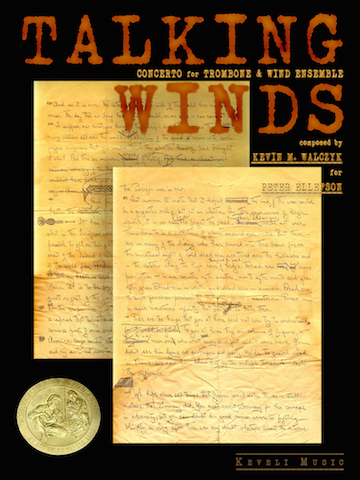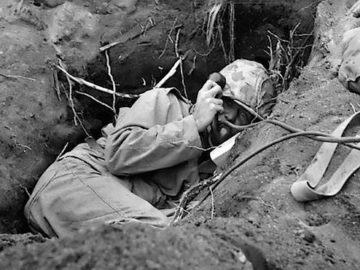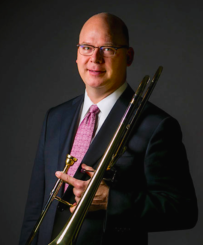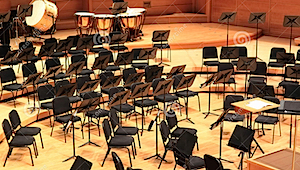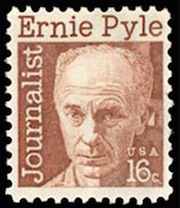 The concerto’s opening movement takes its title from an anonymous prose – Do not stand at my grave weeping – and attributed to the United States Marines, to whom the majority of Navajo Code Talkers served and to whom Ernie Pyle was attached in 1945. A portion of the prose that is musically ciphered in the works first movement, entitled …thousand winds… states, I am a thousand winds drifting gently over the land…caring not where fate takes me, happy to flow through endless beauty…
The concerto’s opening movement takes its title from an anonymous prose – Do not stand at my grave weeping – and attributed to the United States Marines, to whom the majority of Navajo Code Talkers served and to whom Ernie Pyle was attached in 1945. A portion of the prose that is musically ciphered in the works first movement, entitled …thousand winds… states, I am a thousand winds drifting gently over the land…caring not where fate takes me, happy to flow through endless beauty…
In the fall of 1935, Pyle wrote a column, subsequently reprinted during the war years, in which he becomes “conscious of the wind”. Pyle wrote of his formative years in the Midwest, …the summer wind…one of the most melancholy things…in life…comes from so far away and blows so gently and yet so relentlessly; it rustles the leaves and the branches of the maple trees in a…symphony of sadness, and…doesn’t pass on and leave them still. It just keeps coming…You…wear out your lifetime on the dusty plains with that wind of futility blowing in your face. And when you are worn out and gone, the wind – still saying nothing, still so gentle and sad and timeless – is still blowing (across the prairies)…forever…the endlessness of it…lifetimes that would flow on forever, tiredly, patiently…it is eternity. These introspective words are musically ciphered throughout the concerto’s second movement, aptly titled, …the summer wind…
By the early spring of 1945 Ernie Pyle was in the South Pacific and began writing a column to mark the victory in Europe and what seemed the ultimate end to the war across the globe. He would never have a chance to complete it. The draft was found in Pyle’s pocket on April 18, 1945, after he was killed near Okinawa. At the end of this draft, in an attempt to describe the indescribable to a civilian nation away from the warfront, Pyle wrote in his final entry, …Dead men…Dead men by mass production…Dead men in winter and dead men in summer. Dead men in such familiar promiscuity that they become monotonous. Dead men in such monstrous infinity that you come almost to hate them…We saw him, saw him by the multiple thousands… The final movement of the work musically ciphers these words. Ernie Pyle’s name has also been ciphered throughout the final movement, lamentably consigning him to his own, Dead men of mass production acknowledgment. The energetic outsets of the final movement reflect Pyle’s dawning hope of a world without war.
The Northwestern University Symphonic Wind Ensemble, conducted by Mallory B. Thompson, premiered Talking Winds May 17, 2013 with trombone soloist, Peter Ellefson.


